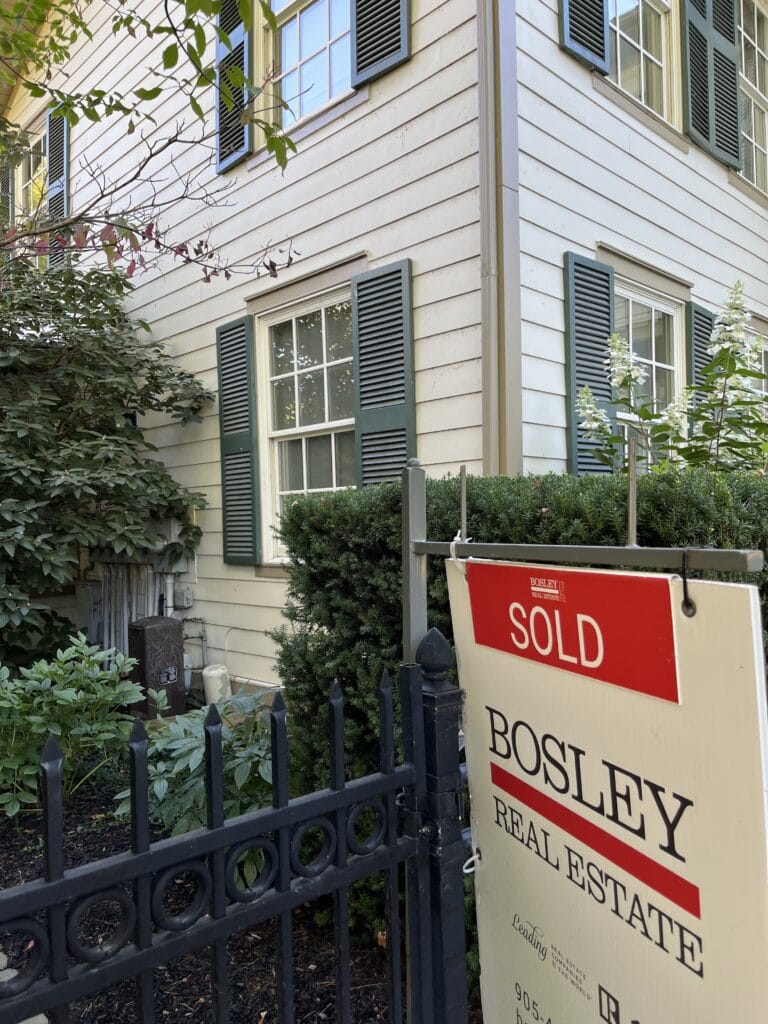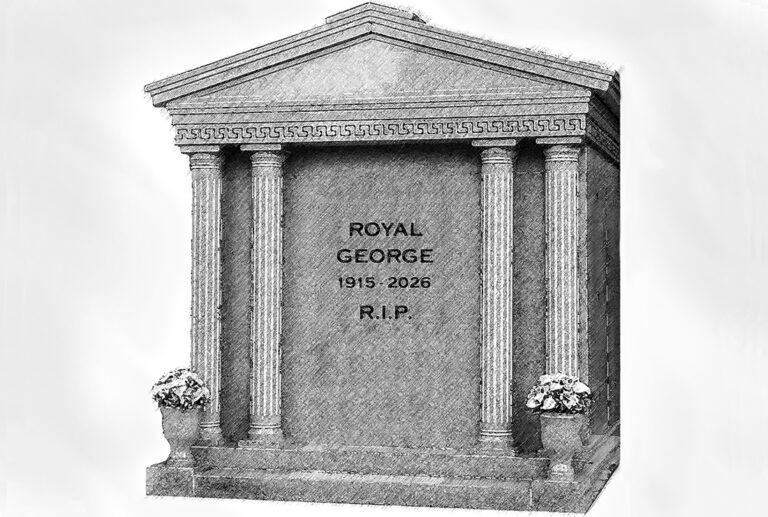To anyone who reads this publication, it isn’t news that the majority of our council — in approving the rezoning of the Parliament Oak property to allow for the construction of a contextually inappropriate hotel — continued its practice of wielding a machete on the fabric, character and cultural heritage landscapes of Niagara-on-the-Lake.
Despite the significant voter opposition — mounting in every settlement area, including the rural environs, in response to a series of council decisions — these councillors continue to cast votes according to agendas which certainly don’t reflect their election promises.
While doing so, both in council chambers and after the fact, loudly voice spurious justifications for their actions.
Consider, for example, the argument that the hotel proposed for the Parliament Oak property will be a five-star facility, filling a purportedly identified gap in existing hospitality offerings.
Have any of these council members researched the Forbes requirements for a hotel to be granted a five-star rating?
If they have, was any consideration given to the practical ramifications of those requirements?
Let’s examine the parking issue in light of some of these criteria, set within the context that five-star accommodation is not only about luxury amenities — of equal importance is the delivery of a flawless experience for every guest.
Five-star hotels are required to have sufficient on-site parking for all their guests, wherein “sufficient” does not imply a one-to-one ratio of parking spots to rooms.
On the contrary, five-star hotels typically have a ratio of parking spots to rooms between 1.3 and 1.5: woe betide the circumstance wherein two guests occupying a single room arrive in separate cars and there is only on-site parking for one of them.
Using a 1.3:1 ratio, the proposed Parliament Oak hotel would need to have a minimum of 168 on-site guest parking spots.
François Delahaye, chief operating officer at Dorchester Collection and general manager of Plaza Athénée in Paris, believes that consistency can only be delivered in luxury with a high staff-to-room ratio.
In an article for consulting company Suzanne Q Solutions, he states, “You need to have staff and an organization that is able to deliver every single minute of the day. In luxury hotels there’s no room or place for complaints.”
What does a “high staff-to-room” ratio look like?
To maintain the service levels required of a five-star hotel, a ratio of 2.5 employees per room is considered to be the minimum, while the international average appears to be 3-to-1 with truly fine hotels in this class exceeding four employees per room.
So, at the minimum 2.5:1 ratio, a five-star hotel as proposed, would require 322 employees. And please note that this ratio does not include “event” employees, a separate group.
Since we know these 322 employees will not be drawn from within the Old Town boundaries, they will need to drive into work.
For simple purposes, let’s assume three equal-sized shifts per 24-hour period and suggest that only 75 per cent of the employees will require parking, a calculation that yields the requirement for 81 employee parking spots.
Of course, these do not necessarily have to be on-site, however, provisions will need to be made within walking distance of the proposed hotel by the owner. Otherwise, the employees will be forced to park on the nearby residential streets.
We are now at a minimum parking requirement of 249 spots.
Having touched on only two of some 800 criteria used by Forbes’ inspectors to grant five-star status to a hotel, and those two only in relation to parking, let’s shift gears to the proposed event facilities.
In my experience, an “intimate” event (for example, a wedding reception) held in a five-star hotel comprises 500 guests, while a “grand” event can run up to 1,500, or even 2,000, attendees.
The proponent of this hotel application suggests they will be able to host two simultaneous events.
Keep in mind those with pockets deep enough to pay for an “event” in a five-star hotel will inevitably, and justifiably, expect service equivalent to what hotel guests experience, with both available parking (for event guests) and a working ratio of one employee per 10-person guest table for the event of, say, 1.5 employees per table, with the associated parking requirement.
In other words, two “intimate” events assuming two guests per car equals 500 additional on-site parking spots.
These events will require approximately 150 devoted event employees and, using the 75 per cent factor employed earlier to calculate the parking requirement, we arrive at 113 spots.
Therefore, in a fully-booked scenario with only two “intimate” events, this proposed hotel will require parking for plus-or-minus 862 cars.
You can bet your life that this site will not accommodate even 25 per cent of that requirement.
Nor that any consideration whatsoever has been given to the extra traffic impact experienced by residents and visitors on King Street’s basic two-lane thoroughfare.
I suppose the supporters of this overture might be OK with converting (or selling) Veterans Memorial Park to create a new parking lot? After all, it’s handy and it would save lots of money in maintenance …
None of the aforementioned even speaks to other Forbes requirements for five-star rating, such as an on-site dry-cleaning facility (with associated environmental concerns) or the criteria that the building’s design “lean-into” a recognized and contextually compatible architectural style – which the proposed design fails at.
So, like the underground parking facility (where the watertable is only plus-or-minus 12 feet below grade) proposed by the hotel developer of the Queen-Mississauga overture, the five-star flag underwriting the Parliament Oak hotel proposal is simply smoke and mirrors that provides those councillors who voted in favour of the applications an excuse.
In my opinion, neither will ever happen without extraordinary measures, which the developers will not undertake for simple financial reasons but, given this council’s record, may end up on the taxpayers’ dime.
All that said, I did promise last week to conclude the review of promises and performance of those serving their first term on this town council.
In very short terms, Coun. Tim Balasiuk’s record of voting on issues before council is nearly completely consistent with his responses to the Niagara Foundation’s 2022 questions to the candidates.
For Coun. Adriana Vizzari, who wrote that the master Official Plan “needs to be strongly adhered” to, who pledged to “strengthen the quality of life in our community and preserve/protect NOTL’s heritage” and to “bring a voice to St. Davids issues,” her record is notably out-of-line.
So much so, during a recent conversation I had with a notable St. Davids resident, he stated, “When Vizzari was elected we thought, finally, we’ll have a voice fighting for us on council. Many of us are profoundly disappointed.”
Coun. Maria Mavridis responded to the Foundation’s question by proclaiming she was “100 per cent (supportive) that the town should adopt and enforce contextual architecture,” that she believed “institutional lands (Parliament Oaks) should remain institutional as there are only a few properties left,” and that her vision saw “NOTL with a balanced life for all residents and business owners.”
But, like Vizzari, her voting record does not underwrite her platform.
Finally, Coun. Nick Ruller, whose responses to the questionnaire were well-thought-out, full of “best practices” overtures, citizen engagement and generally supportive of protection of cultural heritage landscapes.
That said, his voting record (for example, in favour of the Queen/Mississauga hotel application and against the Parliament Oak overture) is somewhat conflicted.
In closing, I cannot but take exception to deputy mayor Erwin Wien’s suggestion that increased tourism dollars were necessary to create and support the maintenance of an expanded historic district (see The Lake Report’s article “Despite backlash, council approves Parliament Oak hotel” from its June 27 edition).
Given that there are numerous professional reports and documents on record which have been authored (and paid-for), the cost of an updated historic district expansion report should be relatively modest.
Furthermore, there are no or negligible maintenance costs associated with a historic district.
Just another highly questionable justification.
Brian Marshall is a NOTL realtor, author and expert consultant on architectural design, restoration and heritage.











